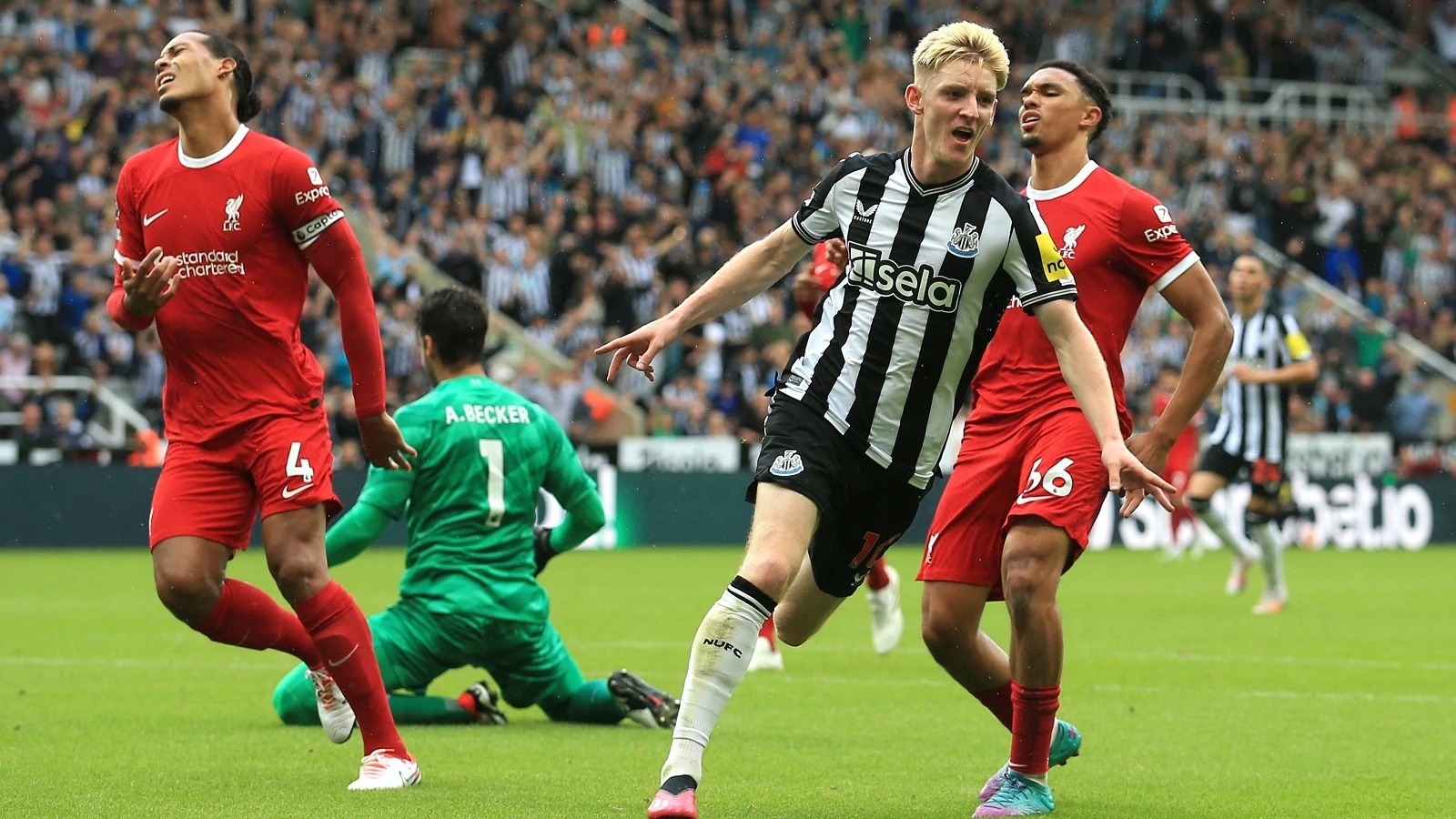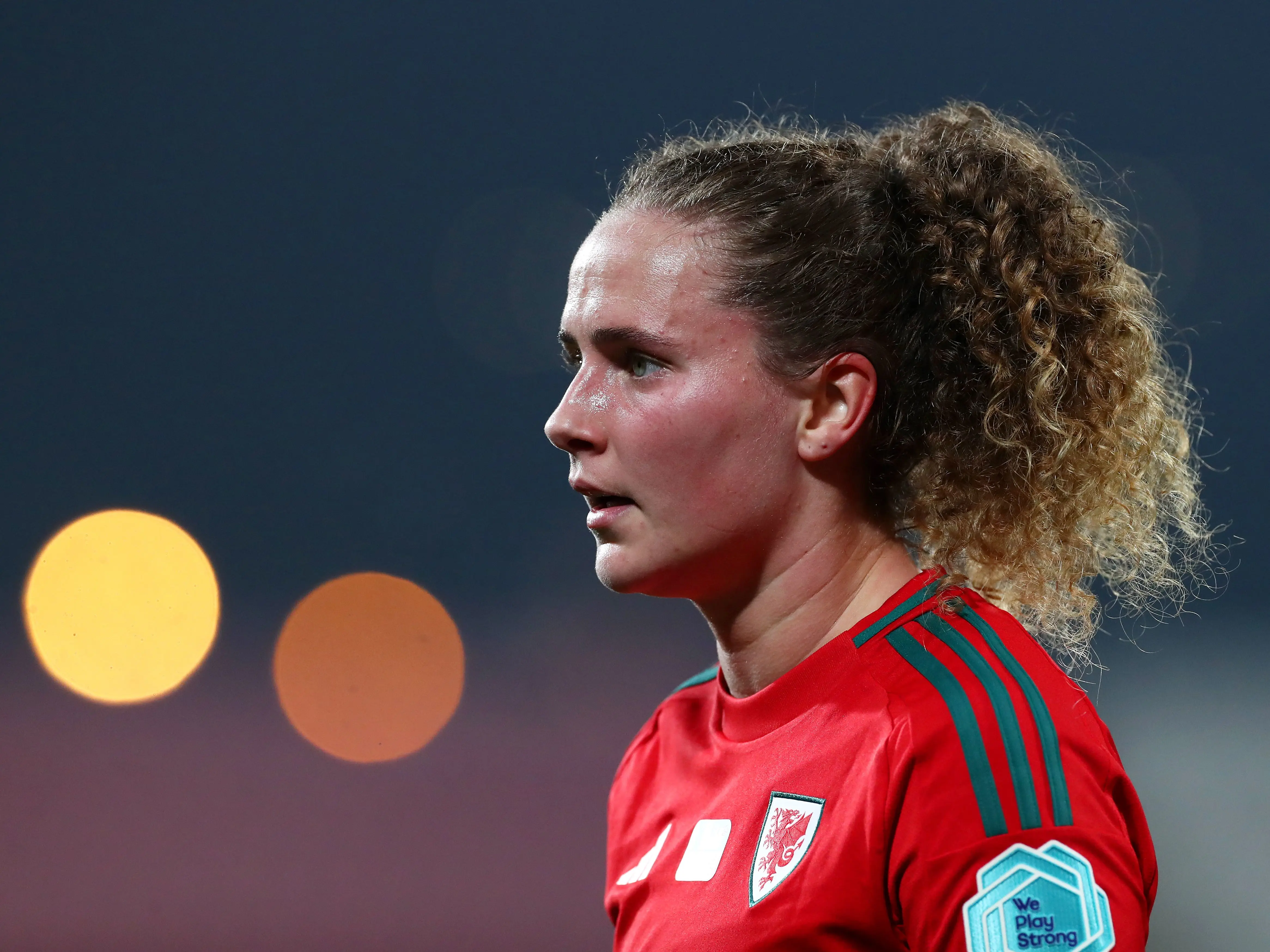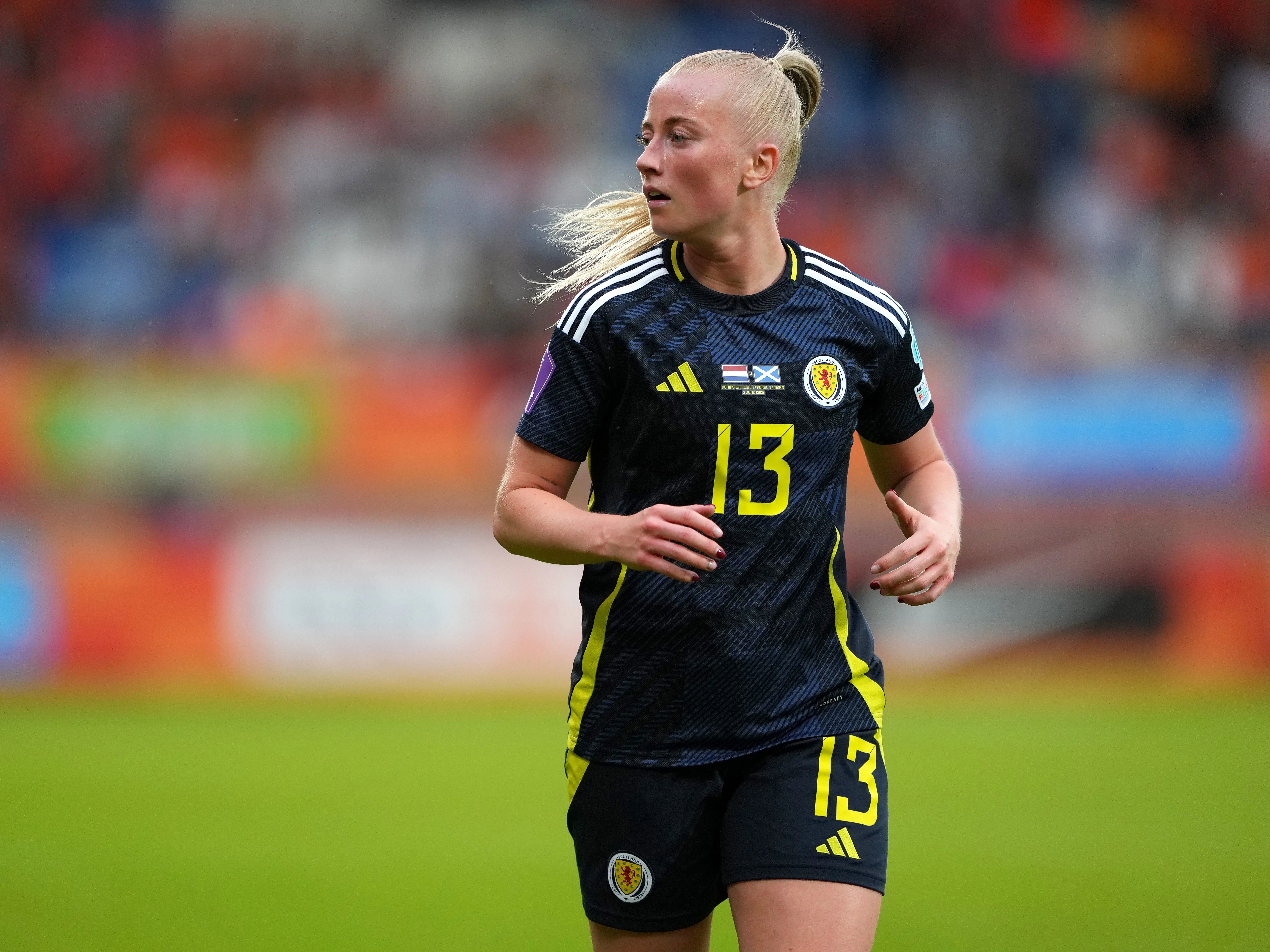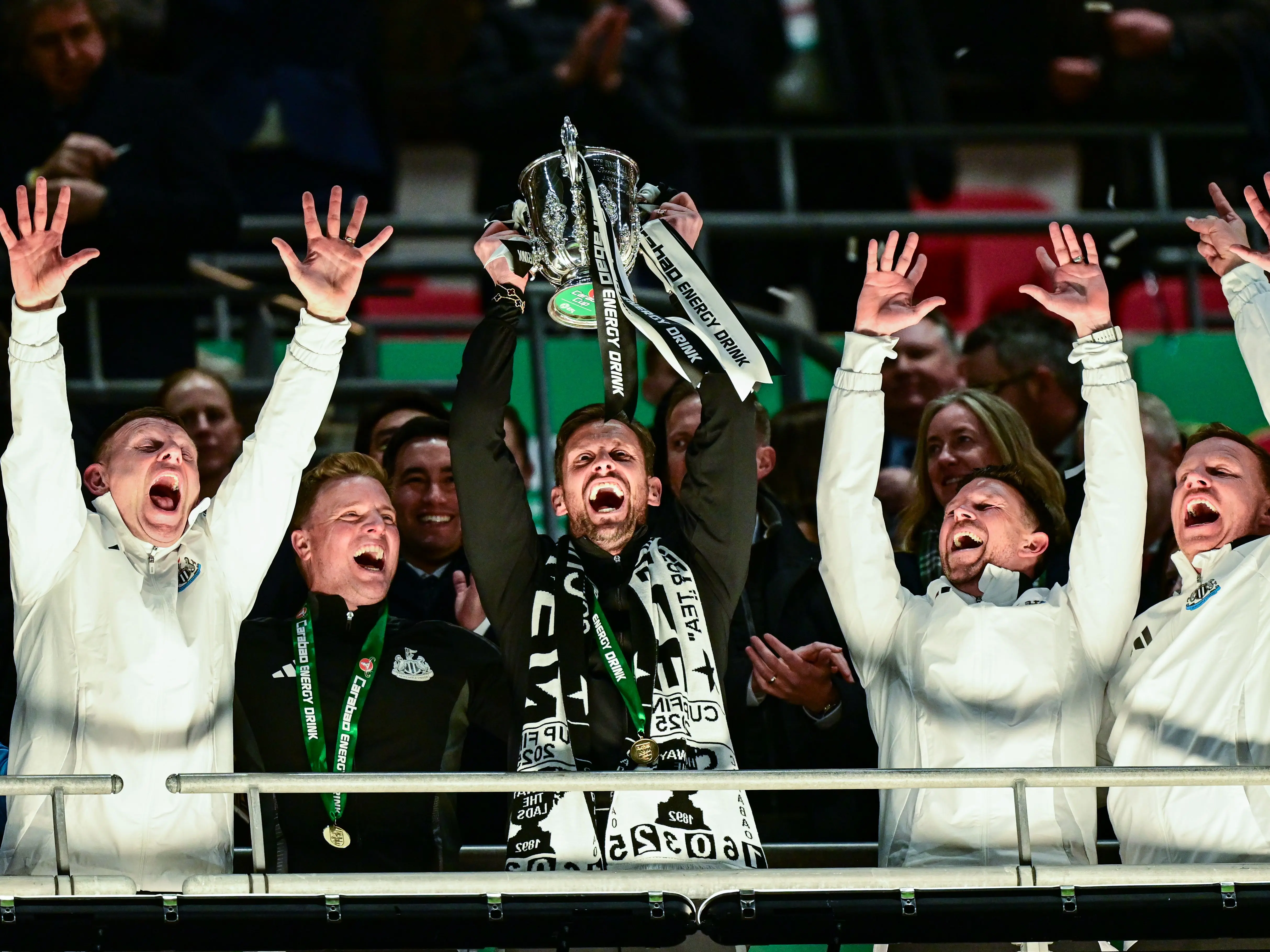It is a creditable position to take but I point out that this revelation probably puts the 22-year-old in a pretty small minority of Premier League footballers. He laughs. "My stance on that remains, really, because I feel like every time I do speak it is a chance to give people an insight into what I'm thinking and what's going on," says Gordon, taking a new seat in the furthest corner of the restaurant at United's Benton training centre after breakfast. "Being a footballer is an interesting job, especially to the fans - they want to know as much as they can. Every time we speak, and speak honestly, it gives them a chance to see what goes on. I really like doing it. It shows people a bit more about me and a bit more about my personality."
Gordon, his antennae up, remembers reading the things players would come out with in his childhood. He was young and impressionable by default but took note of the power of words. "You get a lot of footballers who just do the PR answers. I don't really like doing that. I like to be honest. If I'm asked to do an interview or to speak, that means the people interviewing want to hear my point of view on whatever the questions are. I feel like I'm best just being honest and letting people see what I think."
He has already seen enough to inform his own take on the curious charade of interviews in sport, where questions are often asked in hope rather than expectation of getting an answer. "Sometimes I think we can come across as robots if you do the PR answers," he adds. "We are humans - we have opinions, just like everyone else. I'm not scared to share my opinions and I stand on what I believe in so (if) people don't like it or people like it, that's up to them - everyone has opinions. But I'm not afraid to share mine."
Gordon is "very comfortable with who I am and what I think" and it makes for interesting conversation as his personality comes out through his direct use of language and youthful effervescence. This summer was a milestone for him. His performances at the Under-21 European Championships caught the eye; he brought two goals, an assist and the kind of threat that the Magpies were so keen to add to their armoury last January.
"From a mindset perspective, two or three games before the end of the season, my main focus was the Euros," he says. "I knew we'd get Champions League and I knew, sort of, my position in the squad at that point, so my focus was the Euros because I felt like I could perform there, remind everyone what I can do, then come into the season in a better place."
Having scored his first Newcastle goal in last term's final-day draw at Chelsea, he didn't want 2022/23 to stop and the extra legwork of a close-season tournament was welcome. England lifted the trophy for the first time in almost four decades and Gordon was named player of the tournament - "a massive confidence boost coming into this summer, because obviously last year was quite difficult for me." His winter departure from Everton, where he had been heralded as their bright new hope, was threaded with emotion, on all sides: Gordon was a product of the Toffees' youth system, a son of the city, and had just been handed the number ten shirt.
"At the start of the season, I would say I struggled with going from a young prospect who was doing really well, to what was viewed as the main man at the time, I felt," he says, his scouse lilt as yet unaffected by the move north. "I felt like there was a lot of pressure on me to excel and the team I was at weren’t really ready for (it), if that makes sense. I struggled with that, especially being from my home city - just even more pressure.
"It was more before I came here that I struggled. When I came here, it was just about seeing how good the team are doing, seeing (I) definitely weren't going to be the best player last year with how some of the lads were playing and where I was at, so it was actually easier when I got here. I just had to keep training hard and do the basics right, where you create expectations for yourself and listen to what people are saying."
There were times last term where it just didn't quite click for Gordon in a black and white shirt. Physically, he felt he was lacking. "If you're not fit enough, you can't do certain things and that's how I felt last year. When I played some games last year, I didn't feel fit enough to do the running off the ball and then contribute on the ball. In some games I'd do a lot of work off the ball, but then when we had the ball I couldn’t contribute. It was difficult. Then, some games, I was trying to save my energy when I had the ball, so I wasn't running as much off the ball. It's a crazy thing.
"But when you're fit, fitness breeds confidence. If I have the confidence in myself to feel like I can run back that way," - he tilts his head backwards - "and then when I have the ball I can run past three or four players that way," - and then forwards - "it's psychological. I just feel really confident and in a good place through the fitness."
It was said that he had struggled with what was required of him at his new club. It all sounds fairly straightforward in principle - get instructions, carry out instructions - but is there more to it? How do you learn? "I think to learn best, you have to make mistakes. And I made a lot of mistakes last year," he replies. "I'm very open, and I'm not shy to make mistakes. I'm very happy to make mistakes and learn from them. I made a lot of mistakes last year, and they helped me a lot. I just stayed persistent with that and kept going, and when I was making mistakes it never got me down. I just kept the same mindset, and I've got myself in a really good place through that. That's part of life I think. When things are coming at you, you have to understand that's normal, and to just keep going and don't stop."
He says he has sensed a debilitating fear of mistakes in his profession. "You see it in a lot of people in life, even in football at the very top level - being scared to make mistakes is what holds people back. But I'm not scared to make mistakes in the slightest. I'm very happy to because I view mistakes as an opportunity to learn. I either do the right things, or do the wrong things which eventually will turn into the right things."
He is a graduate of English football's academy system, a structure which still has its critics. Did fear of error linger there too? "I was never told it, because I feel like in football the general consensus is - especially when you're young - that you can't really make mistakes. You can, but in your head you view it as 'you can't make mistakes' and you worry about what people thought of you.
"But I have this conversation with people often - I believed I would get to where I've got to now, but even further to where I want to get to, from a very, very young age. My confidence has never wavered, no matter the mistakes I've made or if people told me I couldn't. It never really bothered me. I always had blind confidence in myself that I would get to where I want to get to, and no-one can knock me off that perch."
Gordon cannot really recall a time where he felt too low. "I would say last year, it was difficult, because I had to come in and sort of swallow my ego a lot," he adds. "People talk about ego as a bad thing, but it's not. None of us get to this level without having an ego. But I think I came in and expected a lot of myself and the way the team was, with the momentum they had, it was always going to be difficult. But I was a bit naïve to that, so it was accepting that and moving on quickly, and just accepting that it wasn't going to be easy. As long as I stayed resilient when making mistakes, I would come through the other side."
One notable misstep came in United's win at Brentford in April, when his petulant reaction to being replaced late on - having only come on as a substitute himself at half time - brought headlines. It must be strange to have the mistakes he says he learns so much from play out in a very public domain. "Yeah, but I think also sometimes I haven't helped myself, that moment being one. That's probably the worst moment of my footballing career, to be fair. I am quite emotional with football, and I think that's a positive, but there's certain situations where you've just got to handle them in the correct way and I definitely didn't in that moment.
"But it was another opportunity to learn for me. I'm still a young lad and I'm going to make mistakes. I wasn't too worried about what people thought of me. I sort of accepted it was a mistake and spoke to the manager, apologised, and he was excellent throughout that process. Our relationship is as good as it's ever been right now, probably because of those things - we've been through those experiences to where we are now."
Elements of Gordon's make-up are patently instinctive and emotional, as seen at Brentford, and he believes leaning into that side of his personality too much on the pitch can "make you make the wrong decisions". But dealing with others' reactions to him is an altogether different discipline. He insists he isn't perturbed by stick he may receive in his line of work (he feels social media is a "trap") but there is a balance to be struck when it comes to dealing with feelings of others.
"I think dealing with other people's emotions… again, other people's opinions don't really matter," he explains. "If you're doing the right things, they don't really matter. You have to have faith in what you believe in, what you're doing. If you're doing the wrong things, you should listen to other people, because they're probably trying to give you some home truths. But if you know deep down you're doing the right things…
"People are always going to have something to say. You need to get yourself into a place where you're doing the right things, (then) that no longer matters any more. You're just doing what you want to do, and you have that tunnel vision of 'this is my end goal, that's where I want to be - and I'm going to do the things every day that are going to get me there'."
More positive reinforcements have come his way too. His former manager Frank Lampard felt he had the tools to "do what he wants in the game". Eddie Howe is on the record with similar sentiments. Like with less complimentary interactions, Gordon says he tries not to take too much in. "I use the same filter. I think when I had Frank Lampard, I didn't have the same filter and I would focus a lot of the stuff he would say, but that only added pressure onto me through my own way of thinking, because of the expectation I was creating for myself. He was a top player so I was probably trying to impress him too much at the end of the day.
"It's about not getting too high and not getting too low. Don't worry about what other people are saying. It's very generous of the manager, and Lampard at the time, to say those things, but I just need to stay focused and not worry about the good or bad things people say about me."
Does that kind of talk affect his expectations of himself? It can be crushing if you don't meet the standards you hold for yourself. "I know what you mean. But the key to that is, expectation is not real. It's all in your head. It's about recognising that, finding routines and things you know you do well. If you're doing the right things all the time, expectations don't matter - if you just follow that path of doing the right things, you will get to where you want to get to. If you then start to expect more and more and more from yourself, you're just creating that in your own mind - no-one else is thinking that but you. So expectations are in your own head, and it's about recognising that and getting rid of it."
So far this season, Gordon has started every Premier League game for Newcastle, scoring his first St. James' Park goal in the defeat to Liverpool. His prominence has felt like a reward for his work over the summer and a hard-honed mental approach. He doesn't permit himself to dwell and says he works with "mentors" on staying in the present. "I think that's the biggest skill in life, to stay present. Ultimately, we're not promised tomorrow anyway. If you look too far forward or back, you create anxiety. You have to stay present and have a tunnel vision on what you want to do at each moment, (then) you'll do yourself some justice and keep yourself in a good place."
Training starts soon and time is running short by the time we address Gordon's interests outside of football. "How long have you got?" he laughs. It was probably a question better posed half an hour ago. "My girlfriend thinks I've got severe ADHD, because I've got so many hobbies and I can't keep still." Snooker, poker and gaming are among the pursuits competing for his attention. "I get really obsessed with things. Whatever is on my mind for those couple of weeks, I'll buy all the gear, research into every detail of it, and it's just my personality. I think that's a good thing because I don't just settle for just being average at something - I want to be the best at everything I do. It's a good mindset to have, but I think it stresses the people around me out."
The Premier League's fastest player on the season's opening weekend enjoys going all in, at a million miles an hour. But footballers' comparatively short working days allow him requisite rest and he says he's grateful for that. It gave him a chance to take in all four instalments of the We Are Newcastle United docuseries on Prime Video, including the episode where he features most prominently. There is a wry smile at the mention of it. Even as someone comfortable in baring part of themselves publicly, it was "a bit cringey to watch" himself in such a light. "It was really good in terms of seeing how hard the club worked to get me here," he says. "It wasn't easy. I knew that at the time, but the documentary gave me a different insight. I actually texted Amanda (Staveley) and Dan (Ashworth) after it saying thank you - and that I will repay that hard work."




